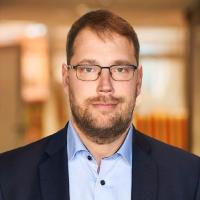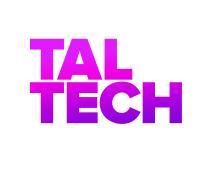A Science|Business Widening event, in partnership with Tallinn University of Technology, University of Tartu, the Estonian Research Council and the Estonian Business and Innovation Agency (13:00-19:00 CET)
In July 2022 the EU formally adopted its New European Innovation Agenda, setting out a range of measures and actions to support the twin green and digital transitions, to improve enabling conditions for and the competitiveness of European innovators, and to strengthen the links between innovation ecosystems across the continent.
At the heart of the agenda lies deep tech – broadly defined as a means of fusing cutting-edge science, technology and engineering, across physical, biological and digital domains, to tackle highly complex issues at an unprecedented pace. As highlighted by the European Commission, the key ingredients in place to be at the forefront of the coming wave of deep tech innovation: seed capital looking for ideas, excellent research looking for capitalisation, strong industrial and talent bases, multiple support schemes and incubators, as well as the scaling-up potential offered by the single market.
Yet a fundamental question remains: how to design a Europe-wide deep tech ecosystem that consistently produces tech start-ups which grow into sustainable, competitive companies, and even “unicorns”? And in parallel, how to ensure that member-states in central and eastern Europe (CEE) are in the vanguard of pioneers from the beginning? Beyond the stated ambitions of policy makers, a quick look at history shows how challenging this will be – a case in point being the years invested in trying to establish a fully integrated European Research Area, not to mention the persistent east-west divides in securing EU Framework Programme grants.
As the EU prepares for its next institutional cycle, which will of course include the design of Horizon Europe’ successor, it is an ideal time for the worlds of policy, research, industry and finance to convene and reflect on how to make the deep tech ecosystem vision a reality. Among the issues topics which could underpin and inspire such debates:
- Which key new conditions and mechanisms – e.g., regulatory, financial, programming, etc – will be needed to foster the next generation of deep tech innovators and companies?
- How can deep tech increase the synergies between Europe’s industrial and R&I strategies?
- What lessons can be drawn from Europe’s past efforts to build R&I ecosystems to enhance prospects for a deep tech equivalent? What can be learned from high-performing deep tech regions and clusters already in place?
- In which ways could deep tech help to boost innovation performance in central and eastern Europe? What kind of policy leadership will be needed to lay the relevant foundations?
- Which role for universities and other research organisations in developing and attracting more talent into the deep tech sector? How to unlock the creativity of engineers and scientists to think about new business models?
On April 24, as part of its Widening initiative, Science|Business – in partnership with Tallinn University of Technology, the University of Tartu, the Estonian Research council and the Estonian Business and Innovation Agency – will convene a high-level, cross-sectoral forum in Brussels to address these issues and more. Through a series of engaged, expert debates, we aim to generate concrete recommendations about the policies and strategies for advancing deep tech innovation in Europe, and its alignment with wider EU objectives.














13.00 Registration and coffee
13.30 Welcome and opening remarks
- Edit Herczog, Chair, Widening Initiative, ScienceBusiness
- Tiit Lukk, Vice-Rector for Research, Tallinn University of Technology
- Mart Maasik, Investment Director, UniTartu Ventures, University of Tartu
13.40 Spotlight Session – Deep tech: Will it “turbo-charge” Europe’s industrial strategy and innovation performance?
There is a belief in various policy and R&D circles that deep tech can be the powering force behind a new industrial revolution, and a critical accelerator for the green and digital transitions. Yet as highlighted in a 2023 report from Vinnova, during the Swedish presidency of the European Council, systemic challenges lie ahead for Europe to be the cradle of this revolution, and to enable its companies to lead the way in a time of global flux and hypercompetition. Per the report, a “compete-to-win” mindset will be needed to unleash deep tech’s full potential. So with the next EU policy cycle fast approaching, what strategies and ambitions should Europe embrace to achieve this longer-term goal?
- Maive Rute, Deputy Director-General and Chief Standardisation Officer, DG Internal Market, Industry, Entrepreneurship and SMEs, European Commission
- Sigrid Rajalo, Director, Innovation and Technology Department, Ministry of Economic Affairs and Communication, Government of Estonia
14.15 Panel Session I – Joining the dots: What are the keys to building deep tech ecosystems, and how best to connect them across Europe?
Deep tech by definition crosses all manner of scientific and technological borders, and requires an ecosystem of aligned actors, incentives and objectives to flourish. Yet in reality the European deep tech landscape – as in many other sectors and tech domains – remains fragmented, with capital, infrastructure and talent often concentrated in small areas. Looking forward, how can local or regional success stories be replicated at scale? What will be needed in terms of policy leadership? And how to ensure that emerging hubs of excellence can learn from and inspire others in a pan-European deep tech community?
- Anton Adamovitch, Managing partner and Ecosystem Architect, Commercialization Reactor; EIT Community Officer, Latvia
- Daniel Marques Vasconcelos, Head, Technology Licensing Office, INESC TEC
- Vaido Mikheim, Deep Tech Project Lead, Startup Estonia
- Keith Sequeira, Head of Unit, European Innovation Council, DG Research and Innovation, European Commission
Moderator: Thomas Brent, EU News Editor, Science|Business
15.00 Coffee break
15.30 Panel Session II – Absorption capacity: What prospects for deep tech market development in the CEE region?
As with any disruptive technology, converting deep tech innovation into societal and economic impact depends on a range of actors – public and private – understanding its potential and integrating its solutions into different sectors and industrial value chains. With specific regard to the CEE region, what could be the most effective ways of creating bridges between entrepreneurs and early adopters, such as multinational companies? Are new approaches needed to build up the investor capital base and to showcase the capability of deep tech start-ups? And where can the EU bring the most value in the process?
- Andreas Aristotle Papadimitriou, Senior Investment Officer, European Investment Bank
- Arnaud Castaignet, Vice President, Government Affairs & Public Relations, Skeleton Technologies
- Krzysztof Czaplicki, Board Member and Co-Founder, Fresh Inset S.A.
- Marta Kaczmarek, Director, EIT Community Strategic Regional Innovations Cluster
Moderator: Edit Herczog, Chair, SB Widening Initiative, Science|Business
16.15 Panel Session III – Brilliant ideas: Which role for universities in powering the deep tech innovation wave?
Universities serve as a vital link between experimental R&D and guiding new technologies towards the market. Of equal importance, however, is their role as a talent attractor and generator, training new scientists, engineers and entrepreneurs at the beginning of their career journeys. As Europe pushes forward to embrace the deep tech revolution, where should universities prioritise their efforts? What challenges do they face in supporting the translation of brilliant ideas into impactful solutions for society? And does deep tech require a paradigm shift in the way they train future generations of research-driven innovators?
- Ilaria Tagliavini, Head of Operations, European Institute of Innovation and Technology
- Mart Maasik, Investment Director, UniTartu Ventures, University of Tartu
- Otomar Sláma, Chairman of the Board, Charles University Innovations Prague
- Sonja Vos-Popelaars, Managing Director, TU/e Participations, Eindhoven University of Technology
Moderator: Simon Pickard, Network Director, Science|Business
17.00 Concluding remarks and start of networking reception
ACE events, Av. d'Auderghem 22, 1040 Bruxelles
For further information, please contact Denitsa Nikolova at [email protected]
Partners






 A unique international forum for public research organisations and companies to connect their external engagement with strategic interests around their R&D system.
A unique international forum for public research organisations and companies to connect their external engagement with strategic interests around their R&D system.